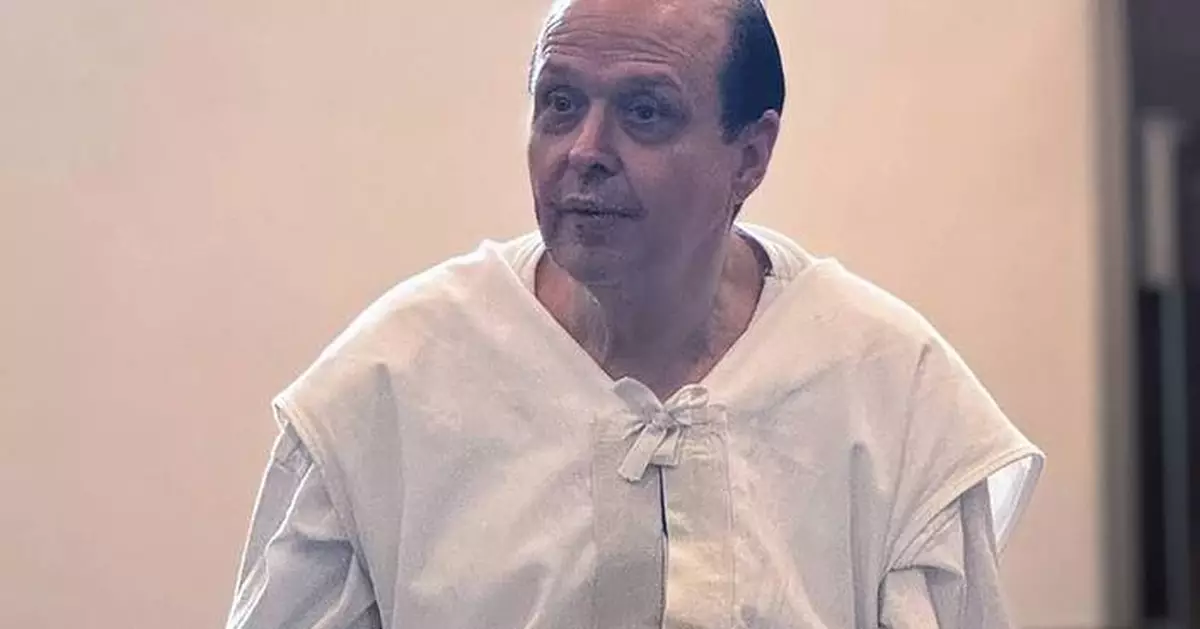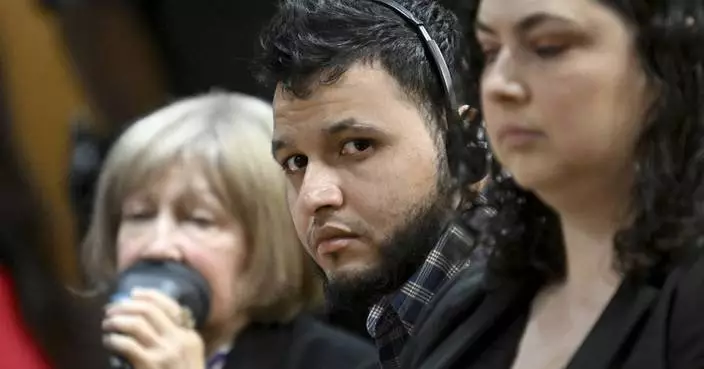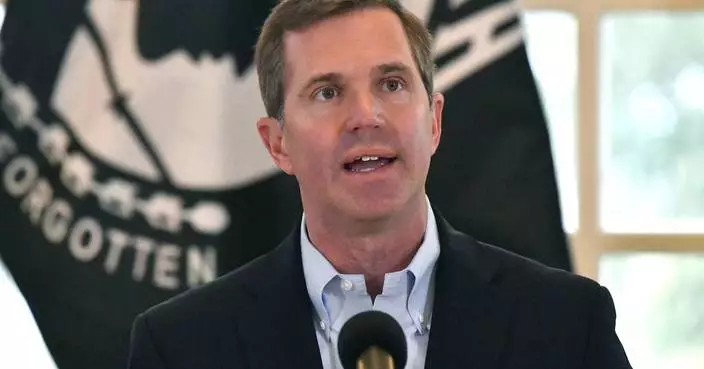AUSTIN, Texas (AP) — The Texas Supreme Court on Friday ruled that a legislative subpoena cannot stop an execution after Republican and Democratic lawmakers who say Robert Roberson is innocent used the novel maneuver to pause his execution at the last minute.
The ruling clears the way for Roberson's execution to move forward, weeks after a bipartisan group of state House lawmakers bought him more time by subpoenaing Roberson as he waited to be taken to the nation's busiest death chamber.
Roberson was sentenced to death in 2003 for killing his 2-year-old daughter, Nikki Curtis. He would be the first person in the United States to be executed over a conviction tied to “shaken baby syndrome,” a diagnosis that has been questioned by some medical experts.
A new execution date for Roberson has not been set, but it is certain to proceed unless Republican Gov. Greg Abbott grants a 30-day reprieve. Abbott did not move to do so before Roberson's original execution date and his office challenged the subpoena tactic used by lawmakers, accusing them of overstepping their power.
The state's all-Republican high court agreed, ruling that “under these circumstances the committee’s authority to compel testimony does not include the power to override the scheduled legal process leading to an execution,” wrote Republican Justice Evan Young, issuing the opinion of the court.
The ruling addressed a subpoena issued for Roberson by the Texas House Criminal Jurisprudence Committee. Roberson was scheduled to die by lethal injection on Oct. 17 when lawmakers, in a last-ditch effort, issued a subpoena to have him testify at the Texas Capitol days after his planned execution.
This spurred a legal conundrum between the state's criminal and civil courts, which ultimately led to the Texas Supreme Court temporarily ruling in Roberson's favor while it considered the matter.
Roberson has gained bipartisan support from lawmakers and medical experts who say he was convicted on faulty evidence of “shaken baby syndrome," which refers to a serious brain injury caused when a child’s head is hurt through shaking or some other violent impact, like being slammed against a wall or thrown on the floor.
Rep. Joe Moody, who has led the effort to stop Roberson’s execution, said delaying the execution with the subpoena was “never our specific intention” and added that the court “rightly agreed” that the subpoena and lawsuit were valid.
Moody insisted that Roberson could still be called to testify since the court ruling "reinforced our belief that the Committee can indeed obtain Mr. Roberson’s testimony and made clear it expects the executive branch of government to accommodate us in doing so.”
Prosecutors said that Roberson killed his daughter by shaking her violently back and forth. Roberson's attorneys have argued that the child's symptoms did not align with child abuse and that she likely died from complications with severe pneumonia.
His case has garnered support from nearly 90 lawmakers across party lines and civil rights advocates who say Roberson is innocent and that he has not been given a fair trial under the state's “junk science law.” The statute allows people convicted of a crime under outdated science to have their sentence overturned. The 2013 law was hailed as progressive and the first of its kind, however civil rights advocates say that the state's highest criminal court is not utilizing the law as they should for people facing execution.
The Supreme Court, which handles civil matters, made clear it was not ruling on the merits of whether Roberson was guilty or innocent of capital murder or on the evidence in question. Those questions reside with the criminal courts, which have so far denied Roberson’s appeals, the Supreme Court said.
Roberson can still testify to fulfill the subpoena, but when that happens is up to the attorney general's office, which has quashed previous efforts, according to one of his attorneys, Gretchen Sween.
“Whether the attorney general’s office will change its strategy and cooperate remains to be seen,” she said.
The parole board voted to not recommend clemency for Roberson before his scheduled execution date, and the governor's office said lawmakers had stepped out of line when they issued the subpoena.
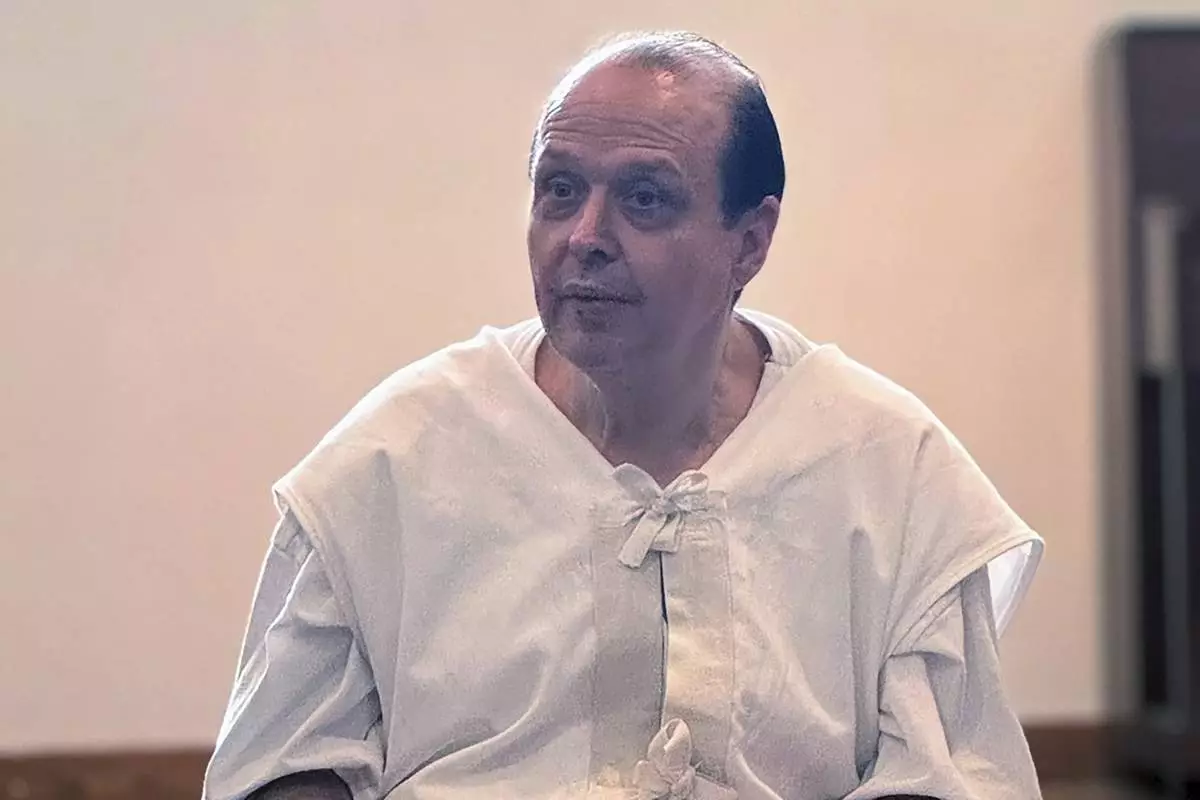
FILE - Texas lawmakers meet with Robert Roberson at a prison in Livingston, Texas, Sept. 27, 2024. (Criminal Justice Reform Caucus via AP, File)
MEXICO CITY (AP) — Mexico’s president lashed out Friday at Moody’s ratings service, after it downgraded the Mexican government’s debt outlook to “negative.”
Moody’s said it had downgraded the government's debt outlook from “stable” to “negative” because newly approved laws in Mexico could weaken the judiciary branch and checks and balances. It reaffirmed Mexico’s Baa2 overall credit rating, but said increased government debt represented a risk for Mexico.
It also mentioned the possibility that the government will have to transfer more money to shore up the highly indebted state-owned oil company, Pemex.
“Deteriorating debt affordability and further government spending rigidity make fiscal consolidation challenging, following this year’s widening in the government deficit,” Moody’s wrote, “a deviation from a longstanding track record of low deficits regardless of economic pressures.”
President Claudia Sheinbaum said that ratings agencies often have a “bias of origin” against the economic policies her party adopted under former President Andrés Manuel López Obrador, who took office on Dec. 1, 2018.
“Many times these ratings agencies are aimed at issuing evaluations starting from an economic model,” Sheinbaum said. “Starting in 2018, the economic model in our country changed. Many times these ratings have this bias of origin.”
Under López Obrador, who was Sheinbaum's political mentor, the government began transferring large amounts of money to the state-run oil company, started large building projects and implemented cash handout programs. That led to federal budget deficits of about 6% of Mexico's gross domestic product in 2024.
Sheinbaum ruled out enacting new taxes next year and said she would rely on increasing tax collection from existing sources. But in the 2025 federal budget submitted by her administration to Congress on Friday, it was clear that sizeable budget deficits would continue for some time.
Mexico's treasury department said it would aim to reduce the deficit to 3.2% of GDP in 2025, but it was unclear if it could achieve that: López Obrador left behind a lot of unfinished train and oil refinery projects, and Sheinbaum has expanded benefit programs for the elderly.
“The government will only gradually narrow the deficit in coming years,” Moody's wrote.
The 2025 budget says Mexico's outstanding federal debts would finish 2025 at around 51.4% of GDP. But that doesn't include a lot of government oil company and pensions debts. It also predicted the economy would grow by between 2 and 3% in 2025, something analysts say is optimistic, given that Mexico's GDP grew by only 1.5% in the third quarter of 2024.
The election of Donald Trump in the United States may also weigh on Mexico's economy, given his past threats to close the border and impose tariffs.
Moody's said Mexico has been benefitting from “nearshoring” investments by companies seeking to move production closer to the U.S. market.
But it noted “additional downside risks to investment dynamics could emerge ahead of the revision of United States-Mexico-Canada Agreement (USMCA) in 2026, particularly if modifications to the agreement’s rule of origins, labor specifications and other US trade policies towards Mexico changed in a way that durably limit the country’s exports.”
“Lower economic growth and, consequently, government revenue would undermine fiscal consolidation efforts,” it continued.
Perhaps most importantly, Sheinbaum has continued López Obrador's push to implement changes to the judiciary that will make all federal judges stand for election in 2025 and 2026.
The U.S. government and business groups worry that could weaken the independence of the courts, and make them vulnerable to political pressure. Critics say that could also allow drug cartels to fund judges' election campaigns and get their own candidates elected.
“The constitutional overhaul risks eroding checks and balances of the country’s judiciary system, with potential negative impact to Mexico’s economic and fiscal strength,” it continued, adding the changes “have the potential to materially alter the checks and balances and the business operating environment in the country.”
Based on those and other factors, the Mexican peso has dropped in value to about 20.40 to $1 in recent days.
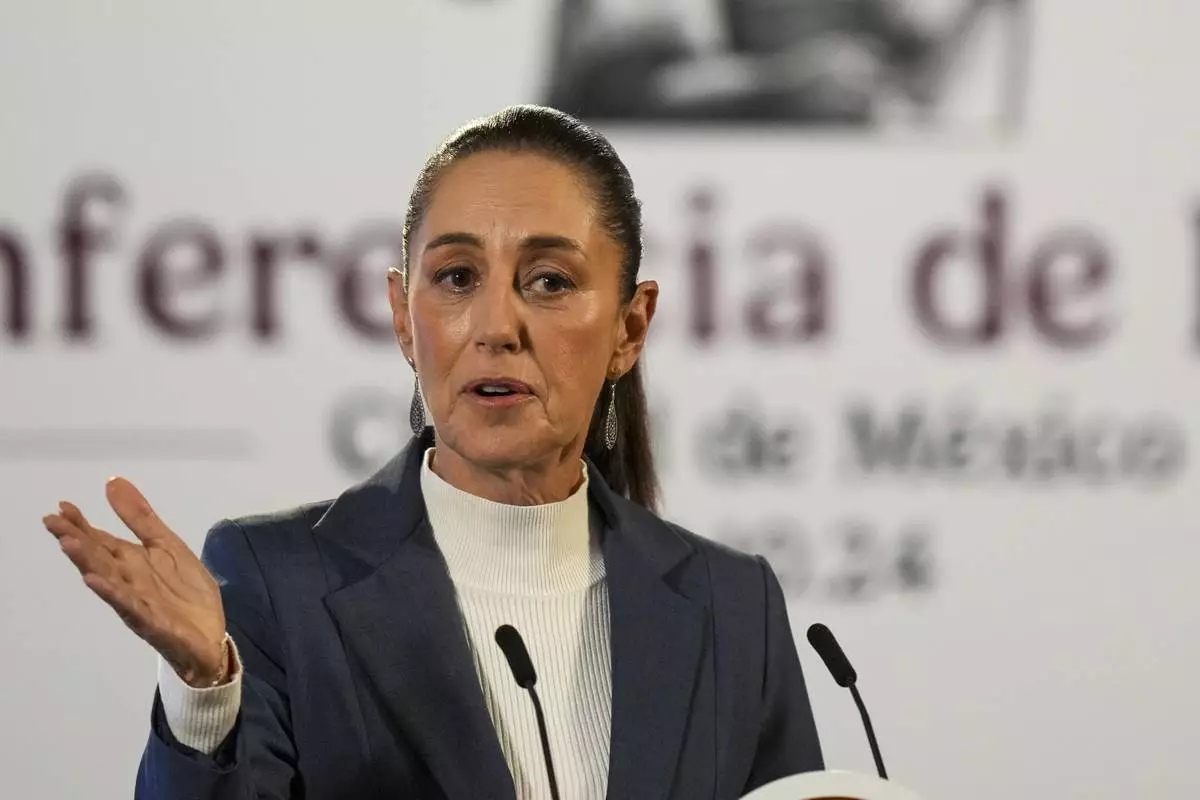
FILE - Mexican President Claudia Sheinbaum gives a media briefing from the National Palace in Mexico City, Oct. 2, 2024, the morning after her inauguration. (AP Photo/Fernando Llano, File)



